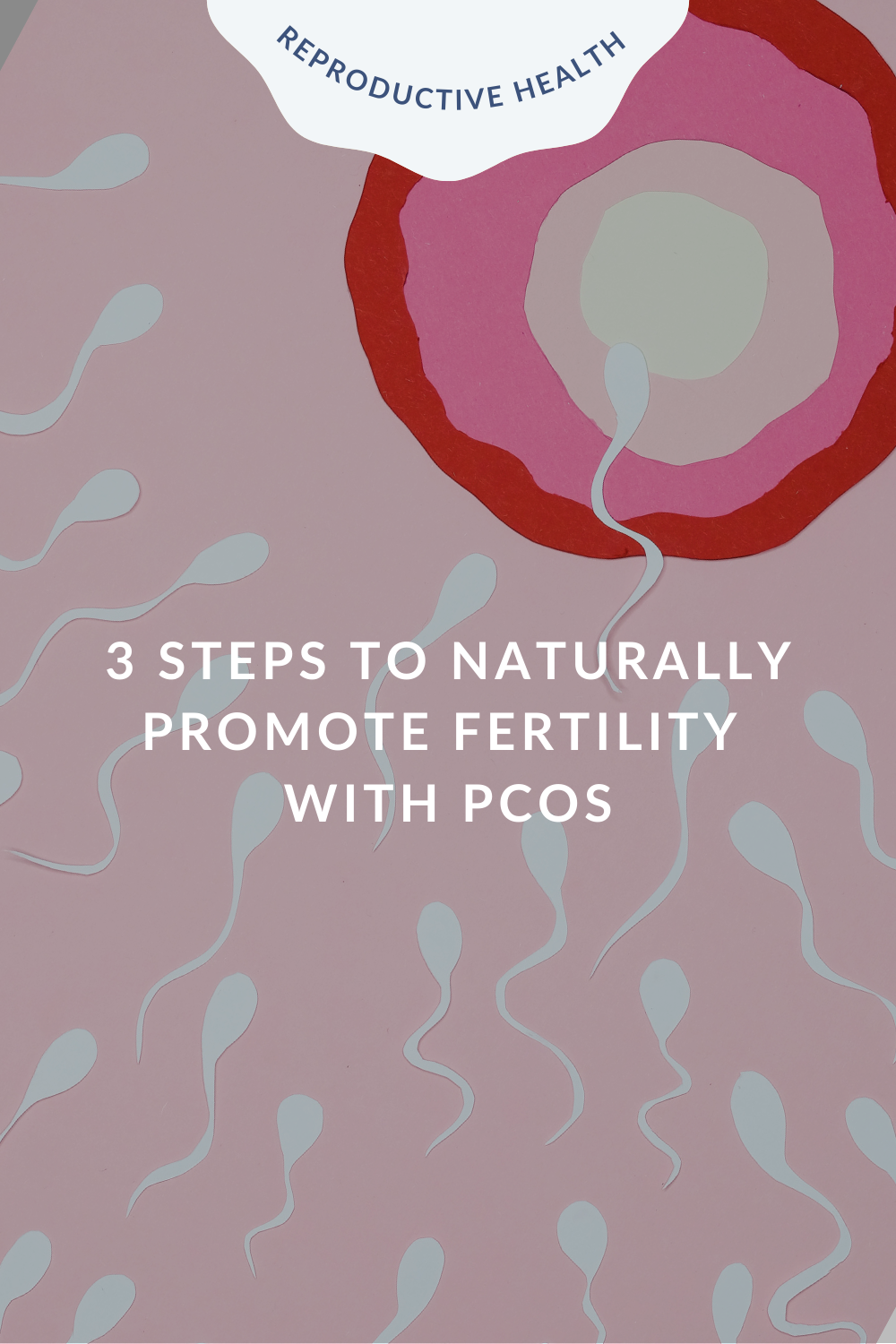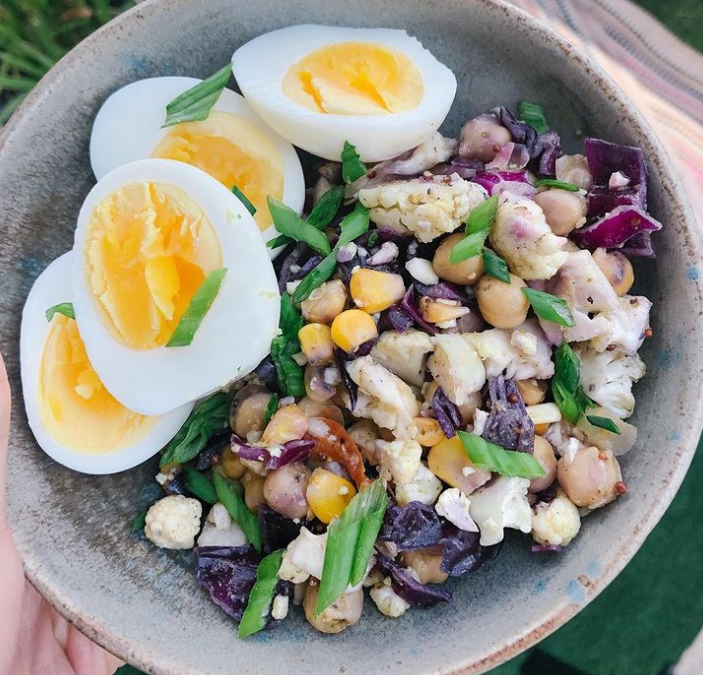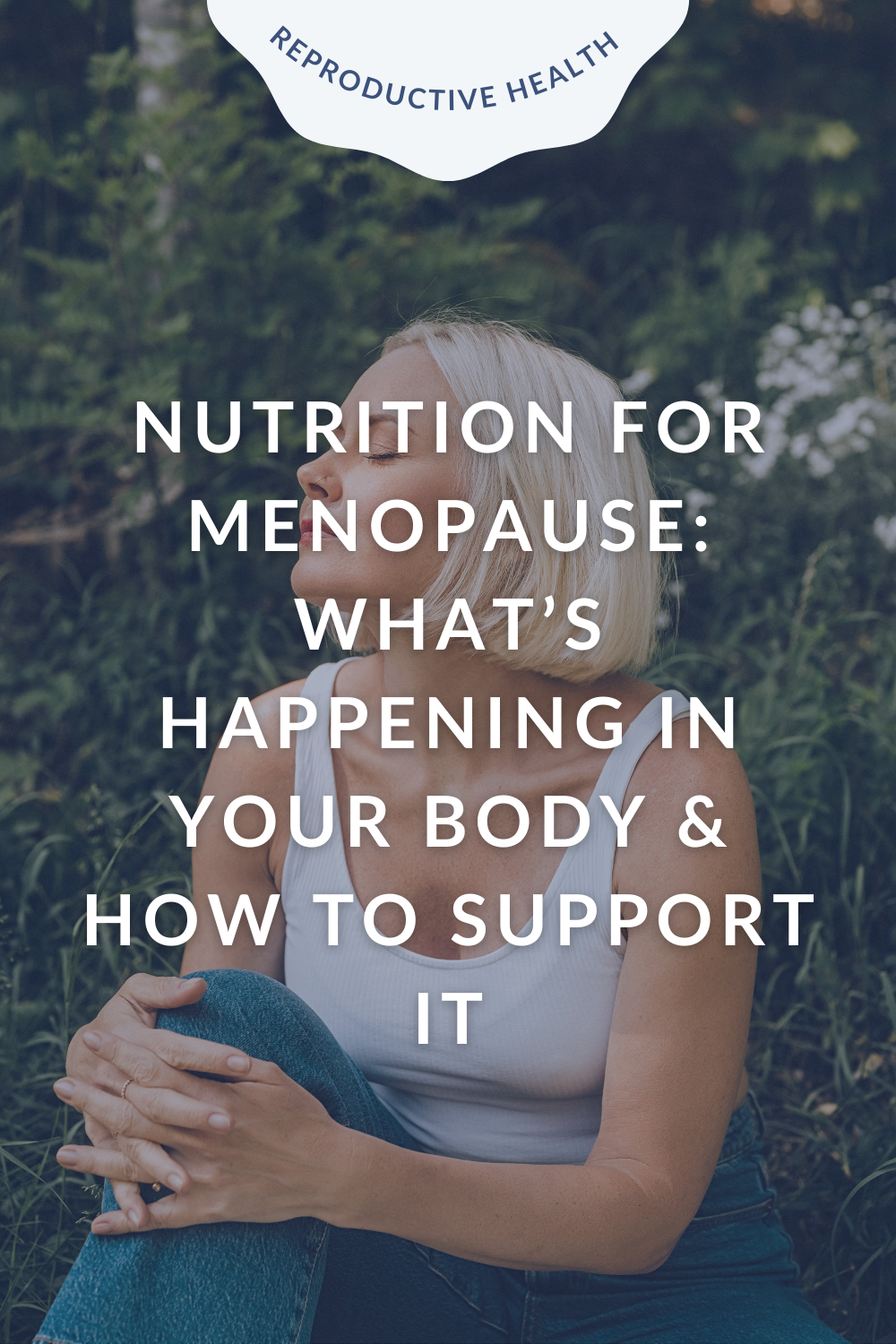3 Steps to Naturally Promote Fertility with PCOS
“You Can't Get Pregnant if You Have PCOS”
If I had a dollar for every time my patient has heard this…
Spoiler alert: that’s a huge myth. But, not to say that infertility isn’t a real challenge.
According to Health Canada, about 16% (or 1 in 6) couples in Canada experience infertility. “Infertility” can be a loaded word and imply permanent inability to get pregnant. But the World Health Organization defines infertility as “inability to get pregnant after 12 months of unprotected sex.” Which is long, yes, but not permanent.
Truth be told, PCOS can cause infertility due to the hormone imbalances disrupting ovulation. But there is hope - it’s treatable - if you so choose to start a family, you can increase chances of conceiving through many treatment options available.
Medications, lifestyle therapy, diet and fertility treatments can help increase chances - there is no “right” or “wrong” way to approach this! I’m all for patient autonomy.
If you’re trying to conceive (TTC), it’s vital that you stay informed about all your options to maximize chances of success. n other words, your TTC fertility journey is yours to decide!
As a Registered Dietitian, of course, I will focus today’s blog post on mostly nutrition and lifestyle support for fertility. If you have PCOS and trying to get pregnant, here are 3 steps to help you naturally promote fertility with PCOS.
Step 1: Focus on regulating your period to conceive with PCOS
Missing or irregular periods? This could be “anovulation”, where the egg is not released from the ovaries, meaning no ovulation or pregnancy can happen. It’s pretty common in PCOS - you may have experienced irregular cycles since menarche (first period), or, notice your period isn’t “quite the same” after getting off birth control.
Everyone’s menstrual cycle can vary, but regular cycles are classified as anywhere from 23-35 days. That means, getting your period every 23-35 days, and ovulating in-between. Don’t fret if your cycles are on the “shorter” or “longer” side - studies point to consistency as being more important for pregnancy success.
The American Pregnancy Association has some excellent, low-to-no-cost resources to help you track ovulation! Getting a blood test can also detect fertility - download a PCOS Labs Checklist for a comprehensive blood work checklist.
If you’re not ovulating regularly and your periods come “at random”, this may help:
Eat enough and eat consistently. For many, this can look like three meals plus one or two snacks. Diet culture has made us fearful of food and calories - but our bodies need them to stay alive and have our organs function optimally! Simply put - eating too little calories can be detrimental to hormone balance and fertility. Now eating at regular intervals can also help stabilize insulin levels, a common driver of androgen overproduction which interferes with ovulation. Also, think of these meals/snacks as a window of opportunity to include more nourishing foods, which brings me to…
Enjoy proteins, fibre, healthy fats at most meals. This combination of nutrients can help provide a low and slow blood sugar and insulin response in the body. Plus, it is very satiating and can help prevent intense hunger and cravings. See this detailed post on How to Build Balanced Meals for Hormone Balance for some more direction.
Gentle movement, stress management, sleep hygiene. I know “managing stress” is easier said than done - the “infertility” diagnosis can be a mental burden on its own. But research continually suggests that psychological support is linked to increased pregnancy rates. If you’re feeling increased stress, work with a qualified therapist to discover coping mechanisms. Take care of yourself through gentle movement - for example, yoga, walking or light weights 2-3 times a week. Practice sleep hygiene and aim for 7-8 hours per night.
From what I see in practice, it can take upwards of 3-6 months for periods to regulate after discontinuing contraception. Our Complete Guide to PCOS Management course gives you all the knowledge and tools to self-manage your symptoms - and yes, that includes restoring your menstrual regularity and promoting fertility.
However, speak to your doctor if there are any concerns - as further medical investigation or intervention may be necessary.
Step 2: Enjoy fertility-support foods with PCOS
Although there’s no “gold standard” dietary pattern to support fertility, research has found these nutrients help promote egg health and development, stimulate ovaries and boost reproduction.
Omega-3 fatty acids. Chronic, low-grade inflammation is commonly found with PCOS, and can pretty much damage all reproductive organs like the ovaries. Eating enough omega-3’s foods (or supplements) like fatty fish, ground flax, walnuts, olive oil can help reduce inflammation.
Antioxidant rich foods, like Vitamins C and E. Remember that inflammation? Antioxidants directly help reduce that by fighting free radical damage in the reproductive organs and cells! Fill up on colourful fruits and vegetables, mixed nuts and seeds and avocados.
Plant proteins. A study of over 18,000 people found that infertility was higher in those who ate lots of animal proteins like chicken and red meat. Fish and eggs were deemed unrelated. But I don’t want you to fear animal foods - they can be jam-packed with fertility supporting nutrients. I suspect these results can partially be explained by the fact that you get a higher net positive from eating plants compared to animals! In other words, animal proteins aren’t “bad” for you, it’s just that eating more plants is even better for you. This is no surprise, as research overwhelmingly links a plant-centric diet to improved overall health. Remember it’s not all or nothing! Simply adding more legumes, whole grains, nuts and seeds to your bowls and plates is an excellent starting point.
Swap for higher fat dairy. That same study of over 18,000’s diets found that full fat dairy in particular reduced risk for infertility by 50%.
Supplement as recommended. Some are linked to improved IVF outcomes and successful pregnancy rates. This includes Vitamin D, Coenzyme Q10, prenatal multivitamin, folate, iron, to name a few! But, it may not all be necessary or appropriate for you - speak to one of our dietitians to find a regimen that’s perfect for you.
Our team of Registered Dietitians, PCOS and Fertility experts are skilled at helping you adopt a fertility-promoting diet and lifestyle while including the foods you love!
Step 3: Practice patience and self-compassion when trying to conceive with PCOS
Trying to start a family can be taxing, emotionally and physically. It doesn’t help that the narrative around PCOS is so focused on infertility and the weight behind that word is so heavy.The labels, the stigma, the lack of education around treatment, the uncertainty surrounding the future - it can be incredibly tough.
We’re no mental health experts, but we have worked with many clients in your shoes, and we know how difficult it can be. Reach out to a qualified therapist if you’re struggling with mental health during this time.
Many turn to food for comfort when emotional triggers arise. Perhaps you can relate. Don’t beat yourself up over it - it can be a way to cope with immediate stressors. Which isn’t inherently a bad thing! But we don’t want it to become the primary coping mechanism, as it doesn’t truly get to the issue at hand. Starting to integrate the practice of mindfulness, and at meal times, mindful eating, can help. It’s not just a woo-woo-feel-good approach to living, but, is actually grounded in science to support mental and physical health. Learn more about how to practice mindful eating here.
The Takeaway
Your fertility journey is a highly personal one, and with PCOS it can come with additional challenges. Thankfully, treatment options can help increase your chances of conceiving.
Nutrition and lifestyle is one of many. Firstly, learn about your cycle and ovulation window. If this is irregular, ensure you’re eating enough calories, consistently, to support your reproductive process. Fill up on healthy fats, fibre-rich foods, tons of plant proteins, higher fat dairy, produce and supplement as necessary.
But perhaps most importantly, we acknowledge the mental health challenges that can arise during this time. It’s crucial to care for yourself during this time - whether’ that’s self-advocacy, engaging your support network, reframing food as self-care or going for a daily walk.
Hi! I’m Trista
A Registered Dietitian and reproductive health expert. I’m here to help you gain confidence to overcome your Polycystic Ovary Syndrome and digestive health woes, while bettering your relationship with food.
CATEGORIES
Starting a family?
Work with our team of Registered Dietitians and PCOS/Fertility experts through 1-on-1 Nutrition Coaching Programs. Receive personalized nutrition care, personalized meal plans and unlimited messaging support to naturally increase your fertility and create lasting change with hormone balance.
Or if you’re more of a self-paced learner, enroll in the Complete Guide to PCOS Management course to gain confidence, clarity, and practical tools to manage your all your pesky PCOS symptoms and increase your chances of pregnancy.
References
https://pubmed.ncbi.nlm.nih.gov/29468748/
https://www.ncbi.nlm.nih.gov/pmc/articles/PMC5870911/
https://www.ncbi.nlm.nih.gov/pmc/articles/PMC6489978/
https://onlinelibrary.wiley.com/doi/abs/10.1111/jhn.12545
https://academic.oup.com/jcem/article/101/9/3386/2806671?login=false
https://www.ncbi.nlm.nih.gov/pmc/articles/PMC1069067/
https://www.clinicaltrials.gov/ct2/show/NCT00694759















